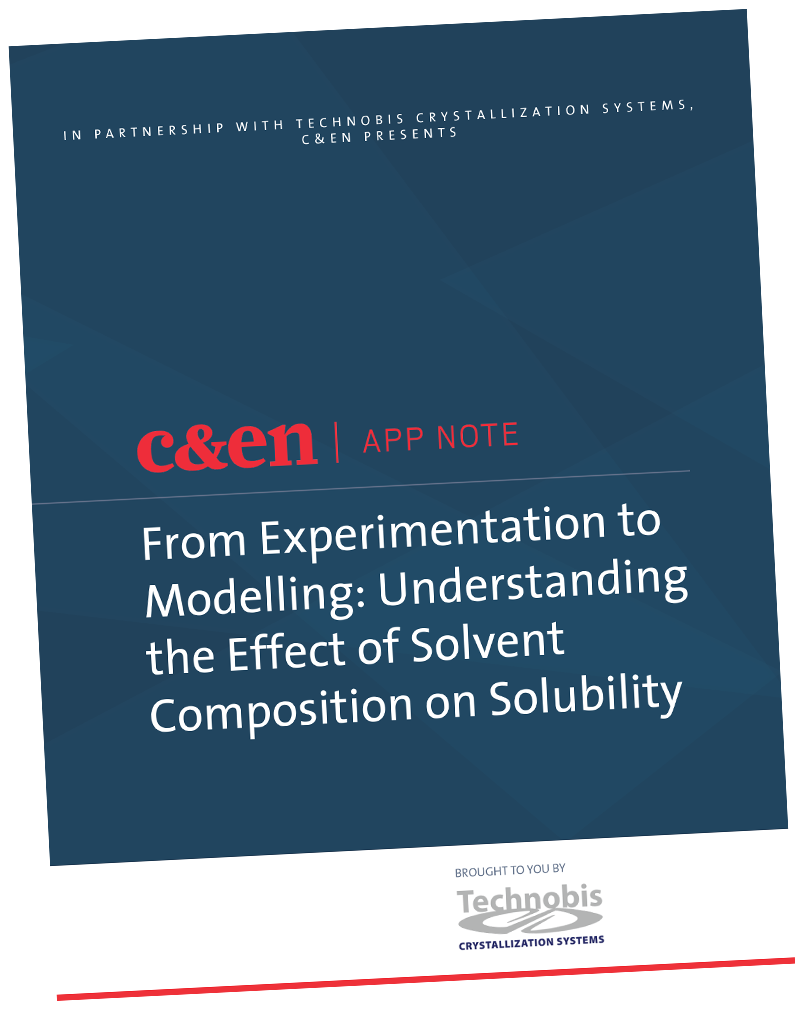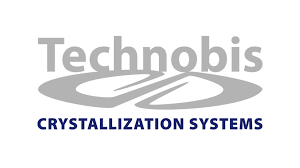

70% of all solid materials produced in chemical industry are obtained by crystallization or precipitation from solution. The solubility of your compound in organic solvents or water plays an important role when designing or optimizing your crystallization process. Knowing the solubility will allow you to select suitable solvents for the different crystallization methods. Alcohols for example, are often used as co-solvents in aqueous solutions altering the solubility and other crystal attributes. In this app note, we exemplify how measured solubility data in various water-alcohol binary solvent systems and the Jouyban–Acree model can be used to predict solubility as a function of temperature and solvent composition. Predicting the solubility in various binary solvent systems makes it easier to select the most appropriate solvent system to optimize the crystallization process. In addition, predictive technology provides us with a wide range of information with limited experimental data and resources.
- Understanding the effect of alcohols as co-solvent on solubility.
- Solubility of ascorbic acid in water-alcohol (methanol/ethanol/isopropanol) binary solvent systems.
- Utilizing the solubility data from Crystal16 to fit the Jouyban–Acree model.
- The model enables to predict the solubility as a function of: temperature and solvent composition simultaneously.

Copyright © 2025 American Chemical Society | 1155 Sixteenth Street NW | Washington, DC 20036 | View our Privacy Policy